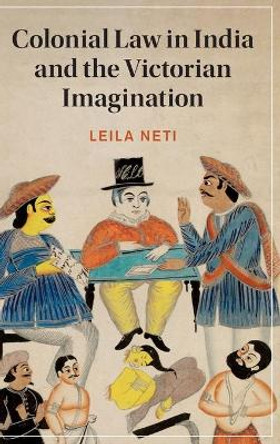Description
Birla reveals how the categories of public and private infiltrated colonial commercial law, establishing distinct worlds for economic and cultural practice. This bifurcation was especially apparent in legal dilemmas concerning indigenous or "vernacular" capitalists, crucial engines of credit and production that operated through networks of extended kinship. Focusing on the story of the Marwaris, a powerful business group renowned as a key sector of India's capitalist class, Birla demonstrates how colonial law governed vernacular capitalists as rarefied cultural actors, so rendering them illegitimate as economic agents. Birla's innovative attention to the negotiations between vernacular and colonial systems of valuation illustrates how kinship-based commercial groups asserted their legitimacy by challenging and inhabiting the public/private mapping. Highlighting the cultural politics of market governance, Stages of Capital is an unprecedented history of colonial commercial law, its legal fictions, and the formation of the modern economic subject in India.
Argues that contemporary India's market society, and its concepts of the market and the public, emerged from commercial laws implemented by the British between 1870 and 1930
About the Author
Ritu Birla is Associate Professor of History at the University of Toronto.
Reviews
"Stages of Capital is a triumph of learned and nuanced interdisciplinarity. 'Stage' as temporal metaphor undoes the great narrative of universal capital. 'Stage' as spatial metaphor illuminates the culture of market governance and community in the colonial theater of South Asia. Richly theoretical, provocatively empirical-an indispensable book."-Gayatri Chakravorty Spivak, University Professor, Columbia University
"Deeply rooted in precolonial pasts and yet somehow fully modern, family firms have remained an important but understudied feature of Indian capitalism. Ritu Birla's book breaks new ground by analyzing the legal and institutional debates that attended maneuvers by the British to manage and transform this institution into the modern capitalist enterprise. A sophisticated and original study of some critical cultural issues in the history of Indian economy, this book will interest all students of modern India."-Dipesh Chakrabarty, Lawrence A. Kimpton Distinguished Service Professor of History, South Asian Languages and Civilizations, and the College, University of Chicago
"This remarkable book shows that the history of colonial capitalisms need not, and cannot, be divorced from subtle changes in ideas of legal subjectivity, gender, and corporate risk taking as subjects of archivally based cultural analysis. Ritu Birla's story of the transformation of the Marwari business clans of northern and eastern India into giants of contemporary capitalism is both impeccably scholarly and resolutely post-Orientalist. This book is a must for all those who sense that the mammoth global meltdown of this decade is powered by myriad regional and cultural capitalist trajectories."-Arjun Appadurai, Goddard Professor of Media, Culture, and Communication, New York University
"Birla's book opens to us a fascinating world of the merchant communities of India, who survived and competed effectively with their British counterpart. The book brings together the intricate details of how these privileged communities sought to protect their spheres when challenged by a different cultural context. . . . There is much to learn from this book. The detail opens up further areas of debate and discussion on colonialism, property rights, and economic development." -- Bishnupriya Gupta * Journal of Economic History *
"In this important study, Ritu Birla unpacks much of the argument and literature on the subject and explains, in this complex, carefully nuanced account, how the Marwaris, a significant community of vernacular capitalists organized in family firms, interacted with various incentives to establish market governance under colonial rule. . . .Readers of the Business History Review will benefit from her thoroughly reasearched, sophisticated account of the kinship capitalism of the Marwaris and its role in developing India's economy and market structures." -- B. R. Tomlinson * Business History Review *
"[An] ambitious, excitingly original work. . . . [T]his book brings together economics, law, and history in a powerful vision that shapes afresh our understanding of capitalism and colonialism."
-- Thomas R. Metcalf * Journal of Interdisciplinary History *
"This is a groundbreaking book, in terms of its theoretical approach as much as its findings and insights. . . . While scholars of post-colonial studies have been criticised for focusing on text and discourse and the expense of material structures, Birla's impressive study demonstrates how important capital was to the construction of western hegemonic power and notions of a colonial modernity. . . . As a call to colonial historians to ask new questions of existing archives, Stages of Capital is an exciting and inspiring intervention in the field." -- Eleanor Newbigin * Journal of Colonialism & Colonial History *
"This remarkable and clever book turns capitalism inside out, revealing the little-studied colonial legal structures that shaped both market governance and the commercial tactics in India. By demonstrating how a major merchant community, the Marwaris, adapted to the tide of colonial legislation about business practices in the 1880s to 1920s, Ritu Birla breaks critical new ground for historians in search of a way into the cultural and institutional construct we call the economy." -- Priya Satia * Enterprise & Society *
"[A] fascinating book. . . . Birla provides some important leads, which other scholars will undoubtedly begin to follow, and she deserves great credit for establishing the terrain of a subject likely to attract further research." -- David Washbrook * Law and History Review *
Book Information
ISBN 9780822342687
Author Ritu Birla
Format Paperback
Page Count 360
Imprint Duke University Press
Publisher Duke University Press
Weight(grams) 549g





